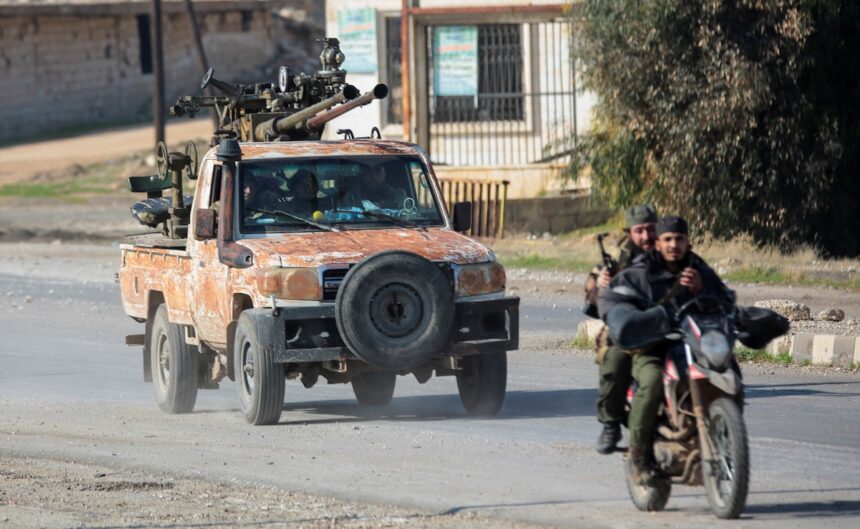The Syrian government forces have suffered a major setback as they lost control of Daraa city, according to reports from a war monitor. This loss comes as a significant blow to President Bashar al-Assad’s rule, following the rebels’ capture of other key cities.
Daraa, known as “the cradle of the revolution,” gained attention early in Syria’s civil war when activists accused the government of detaining and torturing a group of boys for writing anti-Assad graffiti on their school walls in 2011.
Unlike Aleppo and Hama, which were taken over by an Islamist-led rebel alliance, Daraa was seized by local armed groups, as reported by the Syrian Observatory for Human Rights. The Observatory, based in the UK and relying on sources across Syria, stated that local factions now control over 90 percent of Daraa province, including the city itself.
Situated on the border with Jordan, Daraa province has been plagued by unrest despite a truce brokered by Russia, a key ally of Assad. The region has witnessed frequent attacks, clashes, and assassinations in recent years.
The ongoing civil war in Syria, which began with Assad’s harsh crackdown on democracy protests, has resulted in the deaths of over 500,000 people and forced millions to flee their homes. The loss of control over key cities like Daraa, Aleppo, and Hama in such a short period is unprecedented for Assad’s forces.
In a recent offensive led by the Islamist group Hayat Tahrir al-Sham (HTS), the rebels have managed to take over significant territories, including Aleppo, Hama, and now Daraa. The rebel forces are reportedly advancing towards Homs, Syria’s third-largest city, as government troops withdraw from Deir Ezzor in the east.
HTS leader Abu Mohammed al-Jolani, in an interview, expressed the objective of overthrowing Assad’s regime through the ongoing offensive. The group, rooted in the Syrian branch of Al-Qaeda, has been designated as a terrorist organization by Western governments.
As the government forces withdrew from Deir Ezzor, Kurdish-led Syrian Democratic Forces seized control of the vacated territories, crossing the Euphrates river. This sudden withdrawal prompted concerns and speculations about the changing political dynamics in Syria.
The United States Secretary of State, Antony Blinken, emphasized the need for a political solution to the conflict and the protection of civilians and minorities during a discussion with Turkish Foreign Minister Hakan Fidan. The situation in Syria has also prompted talks between Turkey, Russia, and Iran, with regional implications and alliances coming into play.
The developments in Syria have evoked mixed reactions among the population. While some Syrians living abroad are hopeful for a positive change, others within the country, like residents of Homs, express fear and uncertainty amid the rebel advances.
The ongoing violence in Syria has resulted in significant casualties, including civilians, and has led to the displacement of hundreds of thousands of people. The scenes of rebellion and defiance, such as residents burning posters and toppling statues, reflect the deep-rooted grievances and desires for change among the Syrian population.
The unfolding events in Syria underscore the complex and volatile nature of the conflict, with regional and international powers playing a significant role in shaping the country’s future. The situation calls for urgent diplomatic efforts to seek a peaceful resolution and address the humanitarian crisis affecting millions of Syrians.






